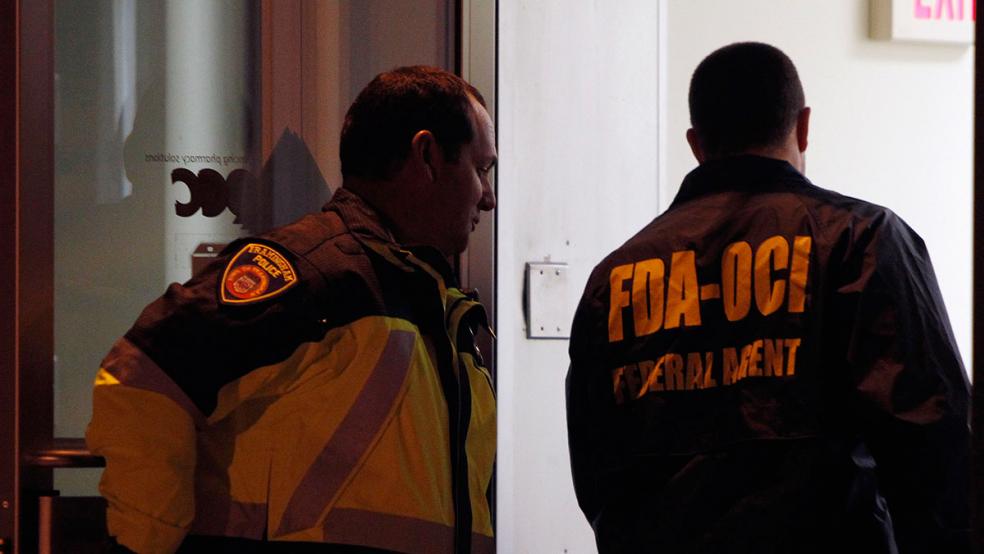The somewhat murky world of pharmacy drug compounding was rocked by scandal in 2012 with the disclosure that 64 people had died and nearly 800 others had been sickened by a multi-state outbreak of fungal meningitis and other infections caused by a New England company’s sale of mislabeled and contaminated medications.
After years of criminal prosecutions, civil suits and huge financial settlements, that controversy finally began to fade.
Related: Doctors and Nurses Charged in Massive $900 Million Medicare Fraud
But a recent report by the Department of Health and Human Services Inspector General’s Office has sparked a new concern that the compounded drug industry, which provides specialized mixed drugs tailored to consumers’ needs, is rife with fraud and may be overcharging Medicare and other health care providers hundreds of millions of dollars.
Last year, total spending by Medicare Part D – the major federal drug benefit program for seniors – reached $137 billion, which marked the third year in a row that the increase in drug spending exceeded $10 billion. Spending on pain-killing drugs or opioids that are at the heart of a national drug addiction epidemic exceeded $4 billion, according to the June IG’s report.
At the same time, Medicare spending on compounded drugs rose by 56 percent last year, with roughly 280,000 beneficiaries qualifying for purchases. The demand for these drugs -- which often cost hundreds or thousands of dollars for single tube of a topical cream, for example -- has dramatically increased over the years, with government-financed spending reaching $509 million last year.
Pharmacists and doctors create these medications by combining or changing drug ingredients to cater to patients who cannot use commercially available products because of allergic reactions or other side effects. The most astounding growth rate has been in the purchase of popular topical creams and gels used to reduce pain. Spending on those has increased 3,400 percent since 2006, according to the IG’s report.
Related: Why a Cheap New Wonder Drug May Not Be Such a Bargain After All
Government investigators say that the sharp increase in Medicare spending for these specialty drugs combined with a huge spike in the number of people seeking them suggests a pharmaceutical market rife with fraudulent activity. “These spending trends, coupled with recent fraud cases involving compounded drugs, signals the need for action,” the inspector general’s report asserted.
John Voliva, executive vice president of the International Academy of Compounding Pharmacists, said in a statement that while legitimately prescribed compounded drugs “can dramatically improve a patient’s quality of life,” it is important to have proper controls around the billing of the government, according to Kaiser Health News. He added that the inspector general’s report reveals that those controls are not currently in place.
Since the Medicare Part D program first began operating in 2006, the inspector general’s office says it has had an ongoing concern about drug abuse and diversion, which not only cheats the government out of money but puts many American consumers at risk. A record 47,000 people died from drug overdoses in the U.S. in 2014, mostly form the abuse of opioids and heroin.
Congress last week approved a measure designed to help combat the nationwide epidemic of opioid and other pain killer drug addiction and abuse. The Centers on Medicare and Medicaid has also taken steps to cope with the problems associated with commonly abused prescription drug pain killers. Meanwhile, the HHS inspector general and federal and state authorities have sought to crack down on physicians and compounded drug makers who have conspired to rip off Medicare, Medicaid and other government health care advisers.
Related: As Valeant’s CEO Apologizes, the Rest of the Industry Keeps Hiking Drug Prices
In many cases, the prescription for compound drugs were either not medically necessary or were improperly or illegally dispensed.
Since July 2015 alone, the government has taken civil and criminal action against pharmacies seeking $20 million in fines and recoveries, according to the inspector general. Many of those cases involve pharmacies “paying kickbacks for prescriptions or filling prescriptions that should not have been filled” under Medicare or other public insurance programs, according to the report.
In one case cited in the IG report, a pharmacy agreed to pay $4.7 million to settle allegations that it had paid kickbacks to marketers and filled prescriptions for compounded drugs that were not legitimate. In another case, a New Jersey pharmacy owner admitted to arranging for middlemen “to pay tens of thousands of dollars in cash bribes to physicians for prescriptions for compounded topical drugs” that were then billed to Medicare Part D and other health care providers. The owner was sentenced to 20 months in prison and ordered to pay $3 million in fines and restitution.
In a third case, a doctor in Minnesota was charged with writing prescriptions for compounded topical pain creams as part of a large-scale Medicare and Medicaid fraud scheme. According to authorities, the physician collected kickbacks for writing “unwarranted” prescriptions and referring practically every patient who was prescribed a topical pain cream to a single pharmacy. The pharmacist also was accused of using cheap bulk drug ingredients not covered by Medicare Part B to make the pain cream and then billing the government for more expensive ingredients.





